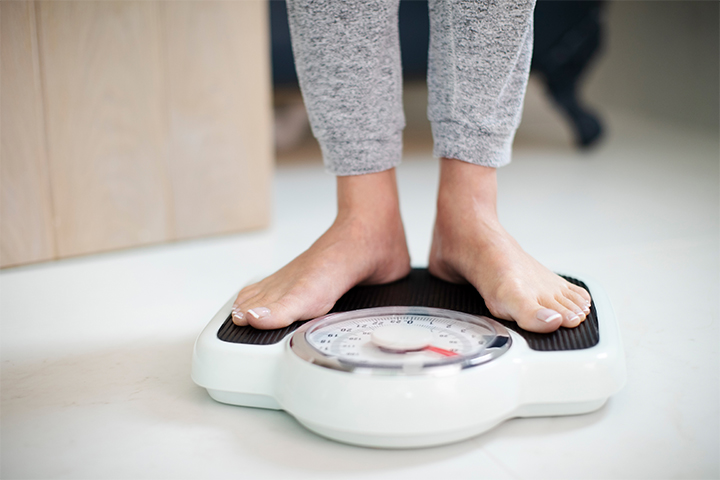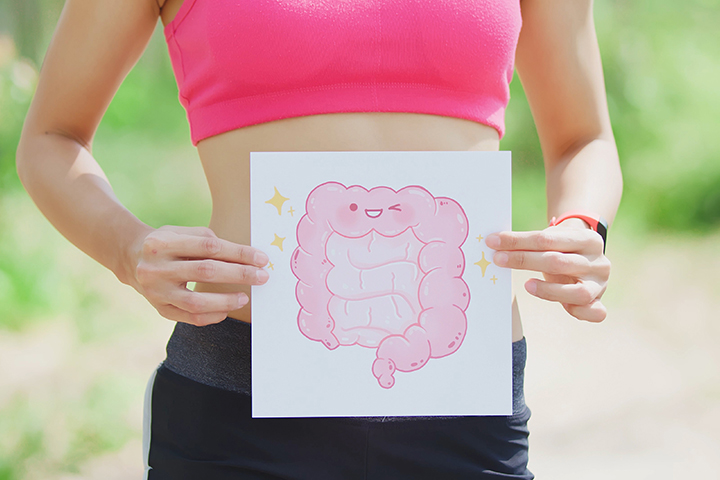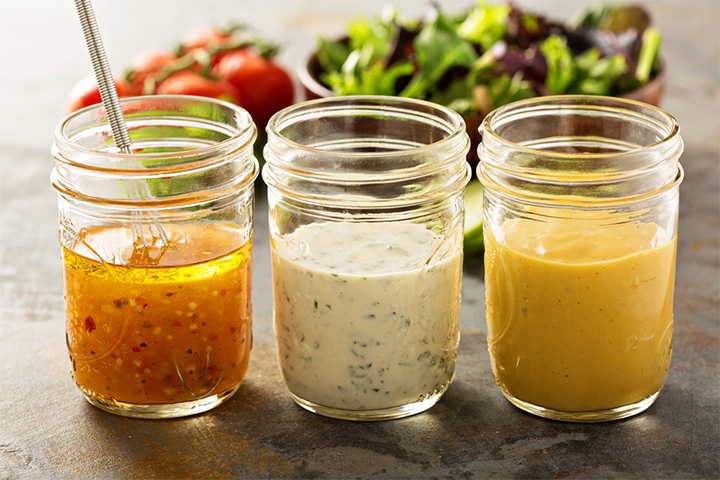Chia seeds are a derivative of the Chia plant (scientifically known as Salvia hispanica), which belongs to the mint family. While nursing, most moms are concerned about the possible interactions between Chia seeds and breastfeeding such as effects on breast milk production and the safety aspects of consuming them. However, chia seeds have high nutritional values and reportedly possess potential nutraceuticaliXRelated to nutritional products that are also known for their medicinal use and therapeutic properties, adding to the mother’s postpartum nutrition.
Is It Safe To Eat Chia Seeds When Breastfeeding?
Yes, chia seeds are considered safe to consume while breastfeeding. The US Food and Drug Administration (FDA) considers chia seeds as food (1).
As per the USDA Dietary Reference Intakes, a vegetarian nursing mom should include calories and high nutrient foods in her breastfeeding diet on a regular basis (2). Chia seeds contain calories and diverse nutrients that may contribute towards lactation support and newborn health. However, since the safety of chia seeds during lactation is not well-researched and not entirely established, it is good to talk to a nutritionist.
How Much Chia Seeds Can A Breastfeeding Mother Consume?
There is no safe intake limit recommended for a breastfeeding mother. However, keep the intake to a moderate amount of two to three tablespoons a day.
If you want to have more, then consult a nutritionist.
Nutritional Value Of Chia Seeds
Chia seeds were one of the staple foods of Columbian and Mediterranean cuisine. About two tablespoons of dried chia seeds, which contain 30-33% fat, 26-41% carbohydrates, and 18-30% dietary fiber, have a nutritional value of 139 calories, four grams of protein, nine grams of fat, 12 grams of carbohydrates, and 11 grams of fiber, along with vitamins and minerals (3).
Basic composition of chia seeds
Source: Chia Seeds (Salvia Hispanica L.): An Overview—Phytochemical Profile, Isolation Methods, and Application
Other nutritional values of chia seeds include (4):
- Healthy fats, particularly PUFAs such as alpha-linolenic and alpha-linoleic acids.
- High-quality protein that mainly includes prolamins.
- Dietary fiber, essential vitamins (mostly B-complex such as folate), and minerals, such as magnesium, calcium and phosphorus.
- AntioxidantsiXSubstance that protects against cell damage caused by free radicals, such as chlorogenic and caffeic acids, quercetin, and kaempferol (5).
The nutritional composition of chia seeds has led them to be approved as a “novel food” by the European Parliament.
Possible Health Benefits Of Chia Seeds When Breastfeeding
Chia seeds are available in both black and white varieties, and have several health benefits. The use of chia seeds is well-documented in Ayurvedic literature as well. On regular consumption, chia seeds are found to have the following benefits for nursing moms.
- Weight loss: As the tiny seeds are rich in soluble dietary fiber, the usual intake of the seeds can help make you feel full (6). The high-quality protein might also help in weight loss (7). However, in the scientific community, there are mixed reviews on the weight loss or weight management effects of chia seeds.
- Improved digestive health: Its total fiber content is higher than quinoa, flax seed, and amaranth (8). Regular consumption of chia seeds could support healthy digestion by regulating the bowels and avoiding gastrointestinaliXRelated to conditions concerning the digestive system issues (9).
- Enhanced gut microbiotaiXMicrobial population inhabiting the gastrointestinal system: An in vivo study supported the use of chia seeds in a regular diet as it may enhance intestinal microbial growth. The seeds may also improve mineral absorption. Besides, it will help in the optimum functioning of the digestive system (10) (11).
- Bone health: High-quality proteins and PUFA may have positive effects on bone health. Calcium and potassium are also vital for bone health (12) (13).
- Immunity: Antioxidant foods influence immunity. Several studies show that chia seeds are a power pack of antioxidants that could reduce the risk of chronic diseases, such as diabetes, and also support healthy infant growth (14).
- Brain health: Essential fatty acids, such as DHA, are believed to enhance cognitive function (15). Some research studies show that chia seeds may help reduce physiological stress (16). The regular consumption of chia seed oil by feeding moms might enhance the total DHA levels of breast milk (17).
- Chronic inflammation: Mothers sometimes experience chronic inflammation. Chia seeds could help in such cases due to their strong anti-inflammatory effects (18).
- General health: Research studies suggest that regular consumption of chia seeds may help lower triglycerides, blood cholesterol levels, and blood pressure. This will help keep cardiovascular health in check (19). Chia seeds also help control blood sugar levels after a meal. All these benefits are attributed to the omega-3 and soluble fiber content of chia seeds (6).
These benefits might also be passed on to the nursing baby through breast milk.
Probable Side Effects Of Chia Seeds When Breastfeeding
Chia seeds seldom cause any serious health complications. However, be observant of the following side effects.
- Gastrointestinal disturbance: Fiber rich foods like chia seeds may cause diarrhea, bloating, flatulence, and intestinal gas in some mothers.
- Possible drug interaction: Excess consumption of chia seeds may cause unfavorable interactions with drugs meant for blood pressure and blood thinning (20).
- Allergy: Proteins in chia seeds may cross-react with potential allergens found in other seeds and foods (21).
Precautions To Take While Consuming Chia Seeds When Breastfeeding
Following are some precautions that you might want to take (6):
- Buy organic chia seeds from a reputed store to be sure of its quality.
- If you have gastrointestinal issues or food allergies, consume the seeds after talking to your doctor.
- Avoid eating the seeds with the food to which you are allergic.
- Consume in moderate amounts.
It is good to consult a nutritionist or a doctor, especially if you have any medical condition or are on medication.
Ways To Include Chia Seeds In Your Diet
Chia seeds can be considered as a replacement of oily fish, which are consumed for their high-quality protein and good PUFA (polyunsaturated fatty acid) content. Since it has easily digestible plant proteins, it is a perfect choice for vegan mothers.
- Chia seeds can be eaten after soaking in water, or the soaked seeds can be added to various dishes. Sprinkle ground or whole chia seeds on cereal, yogurt, or porridges.
- Chia seeds are absorbent and develop a gelatinous texture when soaked in water. This quality of chia seeds can be used to make several smoothies and cereal dishes.
- You can also try sprouting the seeds and adding them to salads, sandwiches, and other dishes.
- Chia seed oil can be used for making salad dressings and sauces. Besides, it is gluten-free and thus is ideal for nursing mothers who have celiac disease.
- Dry chia seeds powder can be prepared and used as a thickener for soups. It can also be used as an egg replacement. For replacing one whole egg, add a tablespoon of chia seeds with three tablespoons of water.
- Chia seeds can also be added to non-vegetarian dishes. Research shows that when added to animal diets, chia seeds can reduce the saturated fatty acids and serum lipids content of the animal products (14).
If you are considering the consumption of nutrient-rich seeds while nursing, you may check these benefits of chia seeds for breastfeeding mothers and infants. It could help you decide whether you want to include them in your nursing diet. While experts suggest that it is safe to consume chia seeds in moderation while breastfeeding, it could pose certain risks of side effects. Hence you must note the precautions before consuming it. Furthermore, you may consult your doctor or a dietician to comprehend its possible advantages and side effects.
Key Pointers
- Chia seeds are advised for nursing mothers as they are rich in omega-3 fatty acids and soluble fiber, which can be passed on to the baby through breast milk.
- Consumption of chia seeds contributes to cardiac health by lowering triglycerides, blood cholesterol, and blood pressure.
- Including chia seeds in a breastfeeding diet can help with weight loss and enhance gut and bone health.
- Chia seeds can be added to various dishes such as smoothies, oatmeal, and yogurt.
- Excessive consumption of chia seeds may cause gastrointestinal discomfort, medication side effects, or allergic reactions.















